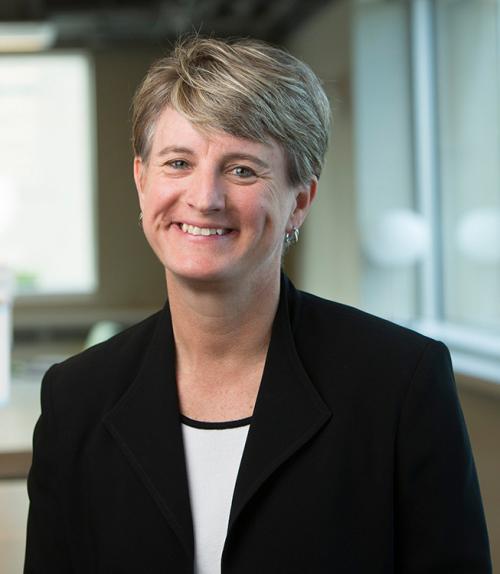The Office of Undergraduate Biology (OUB) is welcoming Beth Howland as its new director of advising and operations, and Howland is looking forward to helping Cornell’s 1,300 biological sciences majors plan their path through college and beyond.
Howland is no stranger to Cornell; from 2008-2016, she served as associate director and director of advising for the College of Engineering.
Then, from 2016-2017, she was the executive director of student services for the School of Hotel Administration, where she oversaw all areas of student services and had an impact on the different aspects of the student experience, from matriculation to graduation.
But she missed the direct student contact she’d had in her previous advising roles.
“I moved into a position with less student contact. I love sitting with students and talking about where they currently are, where they aspire to go and who they want to be. I enjoy helping them navigate the challenges they face, clarify their goals, and chart their own path” Howland said.
She also missed working with students in science, technology, engineering and math fields and having a day-to-day impact on their lives as they seek to improve the world.
So when the opportunity at the OUB opened up, it seemed like a natural fit – one that would allow her to get back into the trenches and focus in on the undergraduate student experience. “A decrease in scope, but an increase in depth,” is how she describes it. The OUB director provides direction and leadership for the OUB’s advising, diversity, research and alumni relations components.
Prior to coming to Cornell, Howland advised students at Ithaca College and Duke University. Before that, she spent over a decade advising Division I student athletes at Tulane University, Duke University and at Cornell, the first Ivy League university to establish a Student-Athlete Development Program and hire a full time staff member to support student athletes.
Howland graduated from Ithaca College with a bachelor’s degree in psychology and education and a master’s degree in sports and performance psychology. After graduation, she worked as a family case worker for at-risk youth at Ithaca’s Family and Children’s Service for five years – an experience that she said had a great impact on her world view.
“It was a wake up call about how society can impose a very narrow set of values and philosophies on what it means to be a family and to love a child, often to the detriment of the family unit,” she said. “It challenged my views on much of what I learned in the classroom and textbooks.”
The experience also helped her become a more empathetic person and a better listener – skills that she said help her in her current role. She still uses the strengths-based approach she’d previously used with students today, to help them focus on the things they have control over and to use their strengths overcome their challenges.
Howland is one of six members on the OUB advising team. With 14 concentrations and more than 1,300 students, the biological sciences major is the largest on campus. It is offered within the College of Arts & Sciences, as well as the College of Agriculture and Life Sciences.
Working with such a large student population comes with its own challenges. However, the opportunities far exceed the challenges. For Howland it is a question of how the OUB team can work with faculty and campus colleagues to be nimble and innovative while continuing to fulfill its primary mission.
Each student has a number of different support teams in addition to the OUB, within their own college and within centralized Cornell services. “We owe it to our students to figure out how we can all add to their experiences and positively impact them in unique and complementary ways,” Howland said.
In many ways, she said, students experience similar challenges across Cornell despite their contextual differences. They are leaders in their communities and exceptional academics, but sometimes they just need someone to reassure them or tell them that it’s ok to step off the treadmill and catch their breath, she said. “I want students to be able to share their whole and authentic self with me so I can help them navigate this tremendous but at times daunting experience.”




